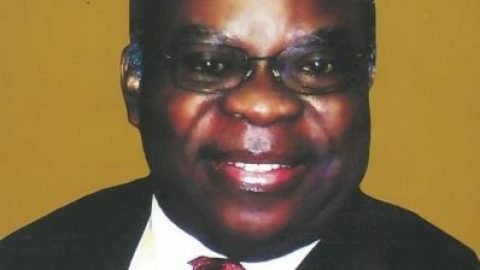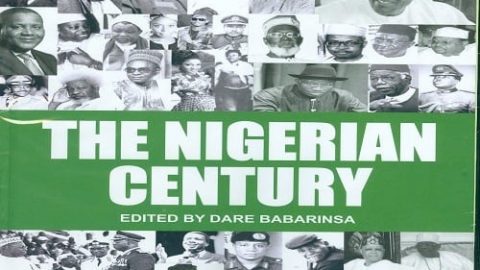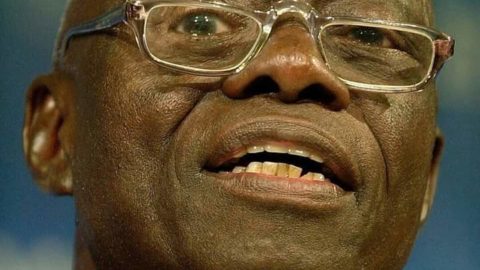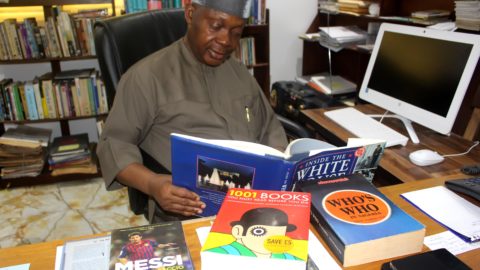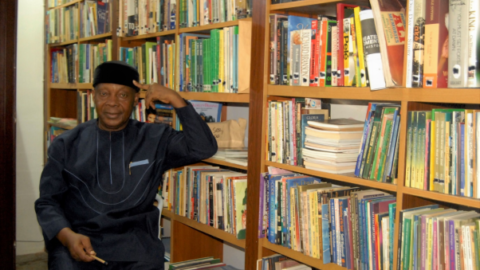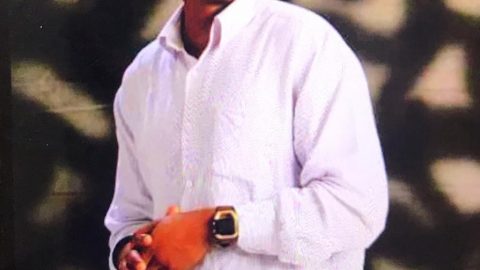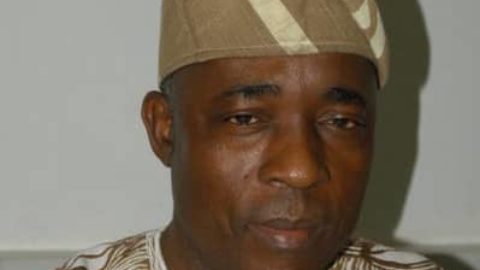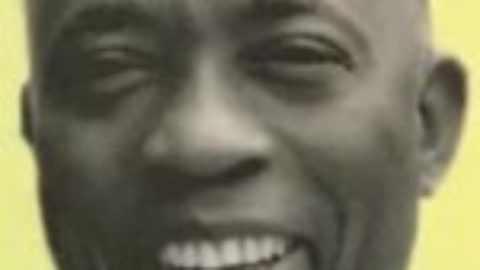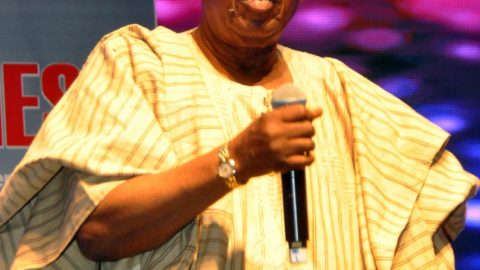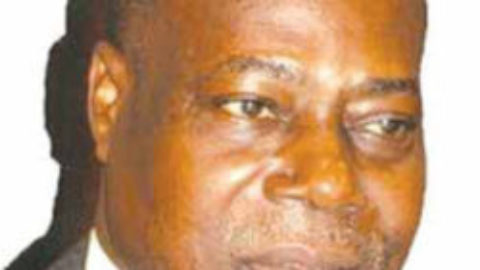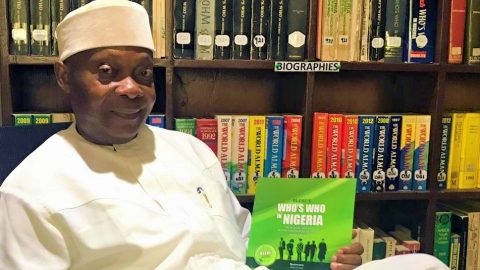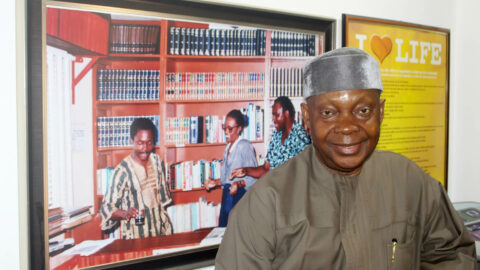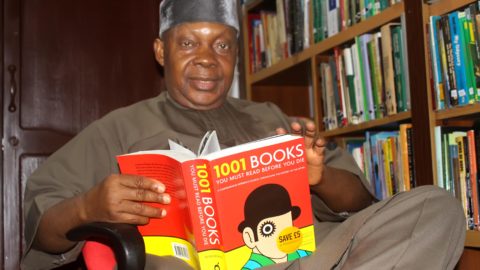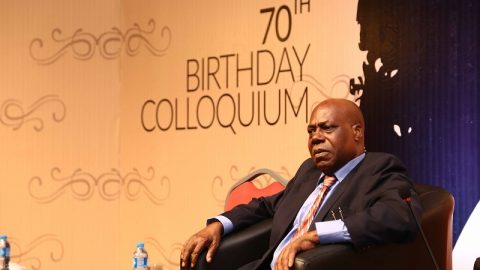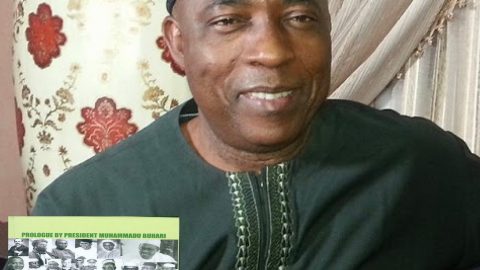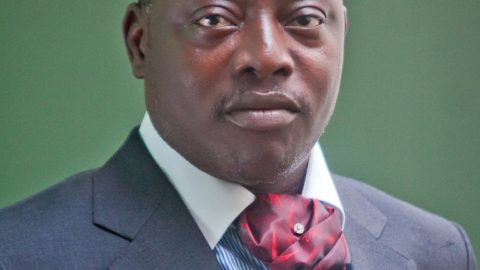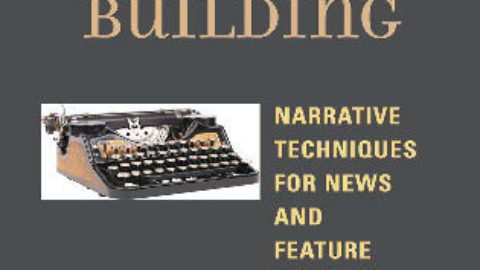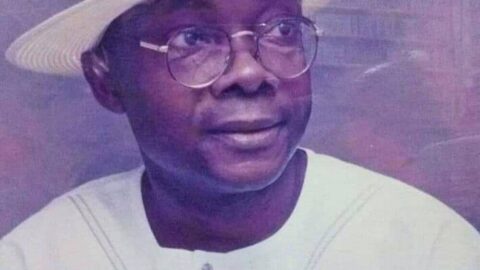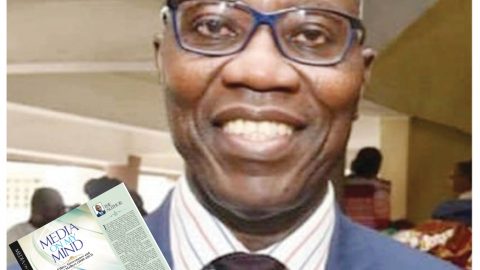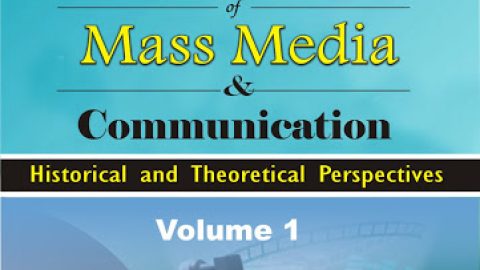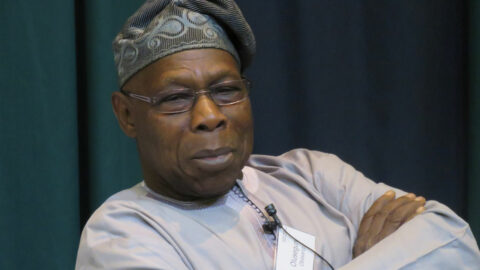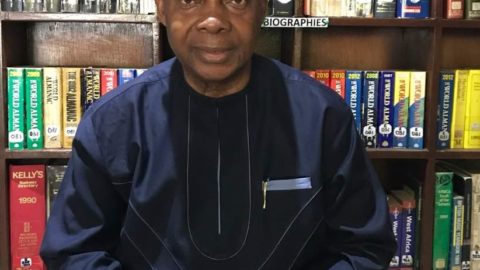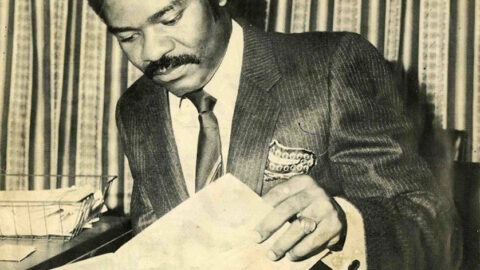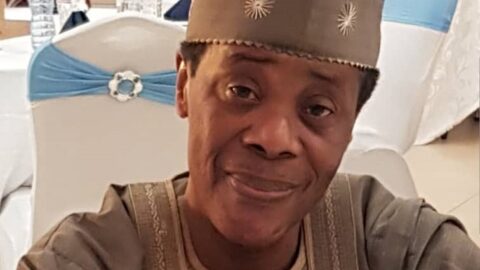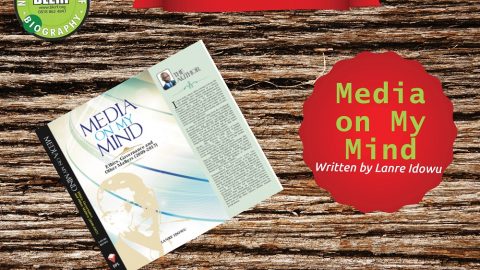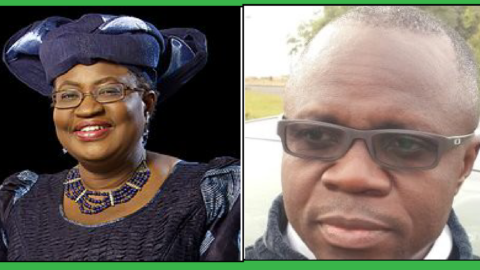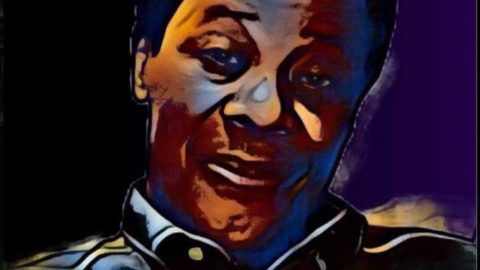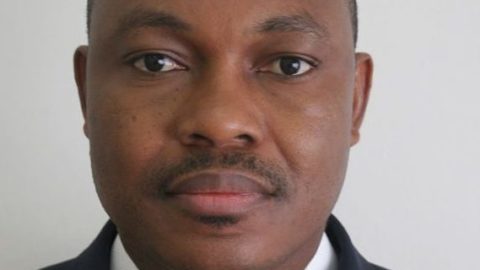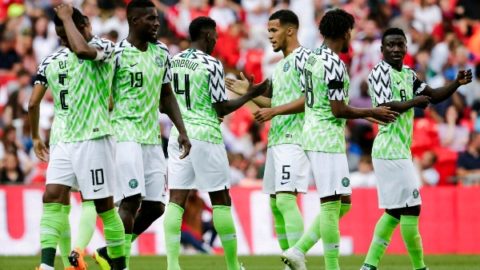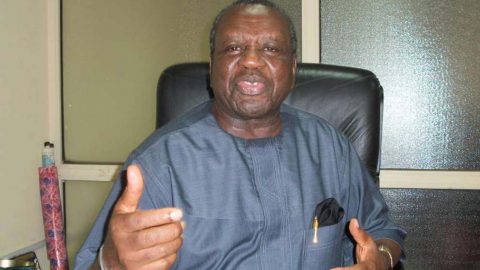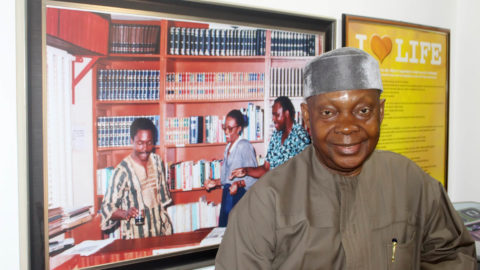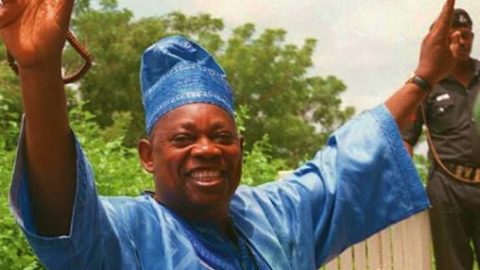A Review of Encyclopaedia of Mass Media & Communication
By Prof. Oshiotse A. Okwilagwe (Ed)
What you are about to read may not be the kind of book review you are used to. The reason is that this book—Stirling-Horden Encyclopedia of Mass Media and Communication—comes in four big volumes. The four volumes are doubtlessly encyclopaedic only in the narrow sense of the word. Nevertheless, each of the volumes treats in detail different issues under mass media and communication.
So, in view of the size of the book, which is a whooping 1, 630 pages, accommodating exactly 98 chapters of insightful essays written by tested and upcoming academics—you and I know how professors write—it would be difficult—though not completely impossible—to analyse each of the articles in details. So, permit me to do the unusual. I will simply introduce the topics under discussion, the authors and if possible make short comments. If the taste of pudding is really in the eating, I can then assume that you would need the four volumes on your shelf.
Written by both well-known and ambitious media professionals, researchers and teachers of mass media and communication, the four volumes are handled by an editorial team comprising some of the best authorities in mass media and communication issues—experienced teachers of mass communication, communication arts, journalism, library and information science.
The lead editor is Professor Oshiotse Andrew Okwilagwe—a specialist in library, archival and information science. He holds three masters degrees in media and communication-related disciplines. He is currently the Vice Chancellor of the Westland University, Iwo, Osun State.
Okwilagwe is a scholar of no mean standing, a publisher, a researcher, consultant in publishing, biographer and book editor.
Other editors of the book are Professor Hyginus Ekwuazi, a prolific author and film director who once headed the theatre arts department of the University of Ibadan. There are also Professor B. O. Y Oshienebo, Professor Fidelis N. Amatokwu and Professor J. F. Wiredu.
Professor Des Wilson is one of the editors of the book. He trained in language and communication arts at the University of Ibadan before beginning his academic career at the then Calabar Polytechnic. Since he moved over to the University of Uyo in the 1980s, Wilson has diligently trained generations of communication specialists, media chiefs, captains of corporations, business leaders, and prominent academics and researchers.
This book seeks to provide relevant indigenous perspectives and materials on mass media and communication. What we have here are well-researched information which are meant to successfully “bridge the gap between indigenous curriculum, instructional materials needs, teaching and learning outcomes in the various sub-units that make up the media and communication disciplines.”
Chapter by chapter, throughout the book, required historical and contemporary information regarding the mass media and communication in Nigeria are provided by the scholars who are wholly Nigerian although some received their training in various academic institutions across the world. Notably however, only one or two of these scholars have equally been in the newsrooms and other corporate organisations as practitioners of what they now teach.
As rightly observed by the editors, the depth of discussion, the style of presentation and the insightful treatment of issues by each of the authors partially reveals the often ignored or unknown reasons “for the dynamism of the Nigerian journalists both in the print and electronic media.” Some of the authors have more than two or three presentations in the book.
The volumes cover such exciting topics as historical and theoretical perspectives of the mass media and communication in Nigeria; principles and practices of mass media and communication in Nigeria; social and entrepreneurial imperatives of mass media and communication in Nigeria; and technology imperatives of mass media and communication in Nigeria. All the articles in each of the volumes—except where clearly indicated—are written by teachers of mass communications or communication arts in either polytechnic or universities in Nigeria.
Most of the materials in this publication were assembled by the initiators of the project during the Mass Media and Communication Instructional Materials Writing and Publishing Seminar and National Conference. Others came from the First National Conference on Communication which had as its theme: Development of Instructional Material (Textbooks) in Mass Communication and Communication Studies in Nigeria in the 21st Century.
Volume One of the book dwells on the historical and theoretical perspectives of the mass media and communication in Nigeria. It has 22 chapters spread across 324 pages with the first two chapters written by Ogbiten B. Ogbemi, a teacher of mass communication at Delta State Polytechnic. First is: Early Newspapers in the History of Journalism in Nigeria (1859-1867); followed by: Origin, Definition and Guidelines for the Practice of Public Relations in Nigeria.
Conceptions and Misconceptions: A Survey of the Fundamentals of Communication Theories is written by Segun Odukomaiya of the mass communication department of the Covenant University while his colleague at Anambra State University, Chinenye Nwabueze, writes on the Fundamentals of Practical Investigative Reporting. Both are detailed and worth attentive study.
Nike Akinwumi of Bowen University and Ate Andrew of Igbinedion University write on two interesting topics: Careers in the Nigerian Book Industry and Revisiting Cultural Imperialism Theory: An Appraisal of the Nigerian Situation. Akinwumi’s material would be of great interest to budding authors, publishers and book marketers. Loaded!
An interesting—and perhaps—unpopular topic: Analysis of Concepts, Assumptions and Propositions (CAP) of the Spiral of Silence Theory of Mass Communication is discussed by Muyiwa Popoola of Ajayi Crowther University in chapter seven while Isika Gideon Udechukwu of Delta State Polytechnic explores Research Methodology and Precision Journalism (Modules 1-3) Beautiful!
Nsikak Solomon Idiong of the University of Uyo takes up two important topics: Expanding the Relevance of Political Communication Scholarship: A New Research Framework; and Towards a New Conceptualisation of the Teaching and Theorising of Media Economics. The topics are full of fresh and challenging research findings.
A Bibliography of Theoretical Paradigms of Mass Media Effect, Part One and Part Two are anchored by Oriola M. Oluwakemi of Tai Solarin University of Education. No matter how theoretical it is, students of journalism will surely find Reporting the News, by Chudi Okwechime of Delta State Polytechnic quite interesting. It is detailed and full of fresh dimensions.
A mouthful topic: Global Expectations, Sustainable Development and the Changing Role of the Nigerian Media Professional in the First Quarter of the 21st Century is handled by Umaru A. Pate of the University of Maiduguri. It is followed by Mass Media Ownership and Control—a very interesting discourse—by Assay Benjamin Enahoro of the Delta State Polytechnic.
Two scholars, Godwin Ehiarekhian Oboh and Owolabi Toyosi Olugbenga Samson both of Benson Idahosa University in Edo State write on the topic: Features and Magazine Article Writing. Again, Benjamin Enahoro returns in the next chapter with: Press Councils and Ethical Standards in Journalism. Exciting!
Magazine Writing and Production in Nigeria is a topic discussed by Ojete Elija Ndidi of Benson Idahosa University; followed by a discourse on Mass Media, Popular Culture and Social Conflicts in Africa by Olusola O. Isola of Bayero University in Kano. Still from Bayero University is Mainasara Yakubu Kurfi who writes on The Role of the Mass Media in Democratic Society: An Opinion Survey in Bayero University, Kano. Local stuff with national significance!
The Relevance of Legal Deposit to the National Library of Nigeria, by A. A. Osunkoya is closely followed by Sustainable Development: Emerging Discourse in Book Publishing in Nigeria, written by Gabriel Aine Obinyan and the Lead editor of the project, Professor Oshiotse A. Okwilagwe both of the Department of Library, Archival and Information Studies, University of Ibadan.
Volume Two of the book takes a critical look at issues under mass media and communication: principles and practice. Discussions cover 23 chapters and are spread across 433 pages. The focus is on the practical aspects of mass media and communication and the principles surrounding the practice. It tackles issues ranging from verbal to non-verbal communication, creative writing, public relations and journalism.
The volume opens with: Understanding Different Democratic Practices through Research: A Review of Trends in Political Communication Studies by Galadima Danladi John of the University of Jos. It is followed by: Quest for Good Governance: Burden for Investigative Reporting Imperatives and Ultimate Vigilant Press as Trustworthy Revelators by Okwuchukwu Okanume of Novena University in Delta State.
Three research presentations are made by Simeon Fowowe of the Department of Primary Education and General Studies in Adeniran Ogunsanya College of Education in Lagos. They are: Creative Writing for Beginners, Study Tips for Written and Communicative English in Higher Education and Advanced Composition, which he pairs with Adeyemo A. A. of Lagos State University.
Another contributor to the book project, Ekeli E. O of Delta State University also makes three presentations in this volume entitled: Parliamentary and National Assembly Reporting; Specialised Reporting, which he combines with Ben U. Nwanne of the same University; and A Guide to Editorial Writing, which he equally pairs with Ogbeni Juliana Ogargare of the same university. Ogargare also authors: Principles and Practice of Public Relations.
Non-Verbal Communication is analysed by Femi Adedina of the Department of Theatre Arts, Adeniran Ogunsanya College of Education in Lagos. It is followed by Ate Asan Andrew of Igbinedion University who does x-rays of three important issues: Challenges of Investigative Journalism in Africa; News Writing and Editing; and Effective Feature Writing. All are well loaded—at least; theoretically.
Objectivity in News Construction by Oziwele Patience Eloho of the Delta State University is worth a serious attention. The same applies to: Styles and Peculiarities of the Mass Media by Amodu Lanre Olaolu of Covenant University; Dramatisation in Communication: The Phonics Approach to Reading by Bolaji Ezekiel of the Department of Theatre Arts, Adeniran Ogunsanya College of Education in Lagos.
Arts and Skills of Documentary is another topic handled by Adeniyi Kehinde Abimbola of the Department of Theatre Arts, Adeniran Ogunsanya College of Education in Lagos; while Adedina Nkemdirin Olubunmi of the same institution writes on Developing Communication Skills: A Theatrical Approach.
From Osun State Polytechnic, Ewuola O. Philip takes on two topics: Writing a Good News Story; and Understanding the Nature of News. Solomon Ntukekpo of Ajayi Crowther University examines: Objectivity and Truth Doctrine in News Reporting and Dissemination. What I see here will surely interest the lords of the newsroom.
Volume Two comes to an end with two additional research papers: Setting Agenda for Library Quality Assurance in Nigerian University System by Oladele B. A., the University of Ibadan Librarian; and Legal Issues in Writing and Publishing Mass Communication and Communication Textbooks in Nigeria, by Abioye Abiola of the Library and Archival Department of the University of Ibadan.
BY SAM AKPE, Consulting Editor, Book Reviews, BLERF
… to be continued in Part 2


